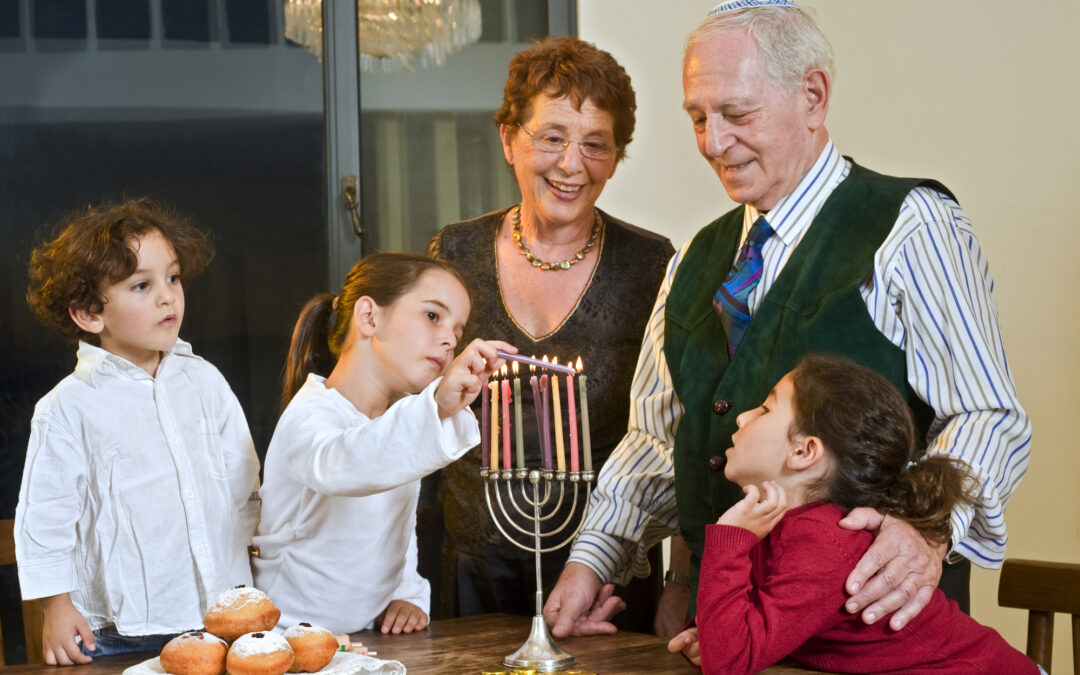What Customs Are Followed during the Festival of Lights and Why
It’s almost time for Hanukkah, the Jewish Festival of Lights. The 8-day religious observance, celebrated on the 25th day of Kislev, according to the Hebrew Calendar, pays tribute to the citizens of Jerusalem who took the city back from Syrian forces in the second century B.C., restoring and rededicating the Second Temple.
The Most Important Hanukkah Customs
Though the over-arching purpose of Hanukkah is to celebrate the rededication of the Second Temple, one of the most important aspects of that is the commemoration of the so-called “Hanukkah miracle.” According to Jewish literature, when Judah Maccabee and his followers reclaimed the Second Temple, they lit a menorah, the seven-pronged candelabrum signifying creation and knowledge. In those days, olive oil was used to keep the candles burning. However, Maccabee’s supporters found only about one day’s worth of usable olive oil at the temple. They lit the menorah anyway and it flickered away for eight days, until a new supply of olive oil arrived.
Not surprisingly, then, candles and oil are among the Hanukkah traditions:
- The lighting of the menorah—To pay tribute to the Hanukkah miracle, members of the Jewish faith typically light the menorah every night throughout Hanukkah, displaying the candelabrum in their windows. In the Hillel tradition, one candle is lit the first night and an additional candle each night thereafter. In the Shammai tradition, it’s the other way around—all candles are lit the first night and one less each of the remaining days.
- Eating fried foods—Another tradition tied directly to the oil that burned for eight days is the custom of eating a variety of fried foods, including jelly donuts (called sufganiyot) and potato pancakes called latkes. There’s a long-running, but friendly, debate as to whether the latkes should be served with sour cream or with applesauce. You should try both before you make up your mind!
- Playing with a dreidel—A dreidel is a small spinning top used mostly as a toy by children. Before the Maccabees reclaimed Jerusalem and the Second Temple, they could not openly practice their faith, and could be punished for studying the Torah or reading any sacred texts. Children who were illegally reading those materials would have a dreidel nearby and would quickly pull them out (while hiding their reading) and pretend to be gambling, should soldiers come by.
- Giving “gelt”—Gelt translates to “money” in English. In ancient times, people in the Jewish community gave money to children, teachers and the poor. In modern times, the tradition of giving real money has been replaced with a custom of giving chocolate coins, typically wrapped in foil.
- Giving other gifts—Though gift exchange was not originally a part of Hanukkah (and while Hanukkah is not the Jewish equivalent of Christmas), it is a modern tradition to include some gift giving as a part of Hanukkah
Gutterman’s—Providing Funeral and Burial Services to the Jewish Communities in New York and Florida
At Gutterman’s, we bring more than 125 years of experience and compassion to the Jewish communities in New York and Florida, offering comprehensive guidance in all matters related to funerals and burials. We have a thorough knowledge of Jewish rites and traditions, and can advise and assist you on all matters following the death of a loved one, from the arrangement of the memorial service to the creation of a Yahrzeit calendar or the selection of a monument.
We are committed to providing the services you need in ways that maximize your health and safety, as well as that of our employees. We adhere to all guidelines established by public health experts governing appropriate response to the Coronavirus pandemic, from the application of social distancing measures to the proper use of masks and hand sanitizer. We will work closely with you to identify and implement measures that allow you to pay your respects to a loved one, honor your traditions, experience your grief and stay safe. To learn more about our current safety measures, visit our website.
To ask any questions about our services or for any assistance after the death of a loved one, call us at one of the numbers provided below. We are currently available to consult with you by phone, text message or videoconferencing. Our phones are answered 24 hours a day, 7 days a week.

